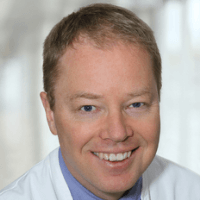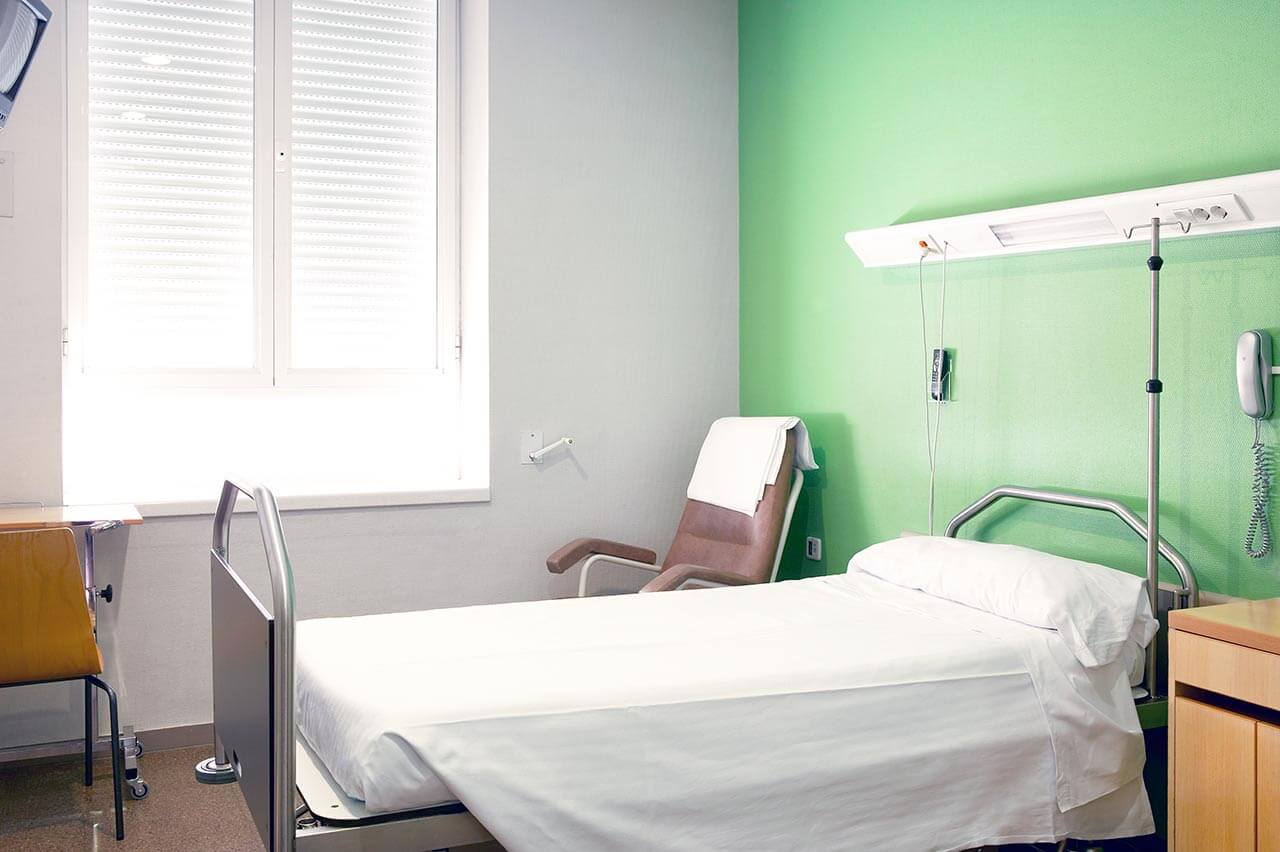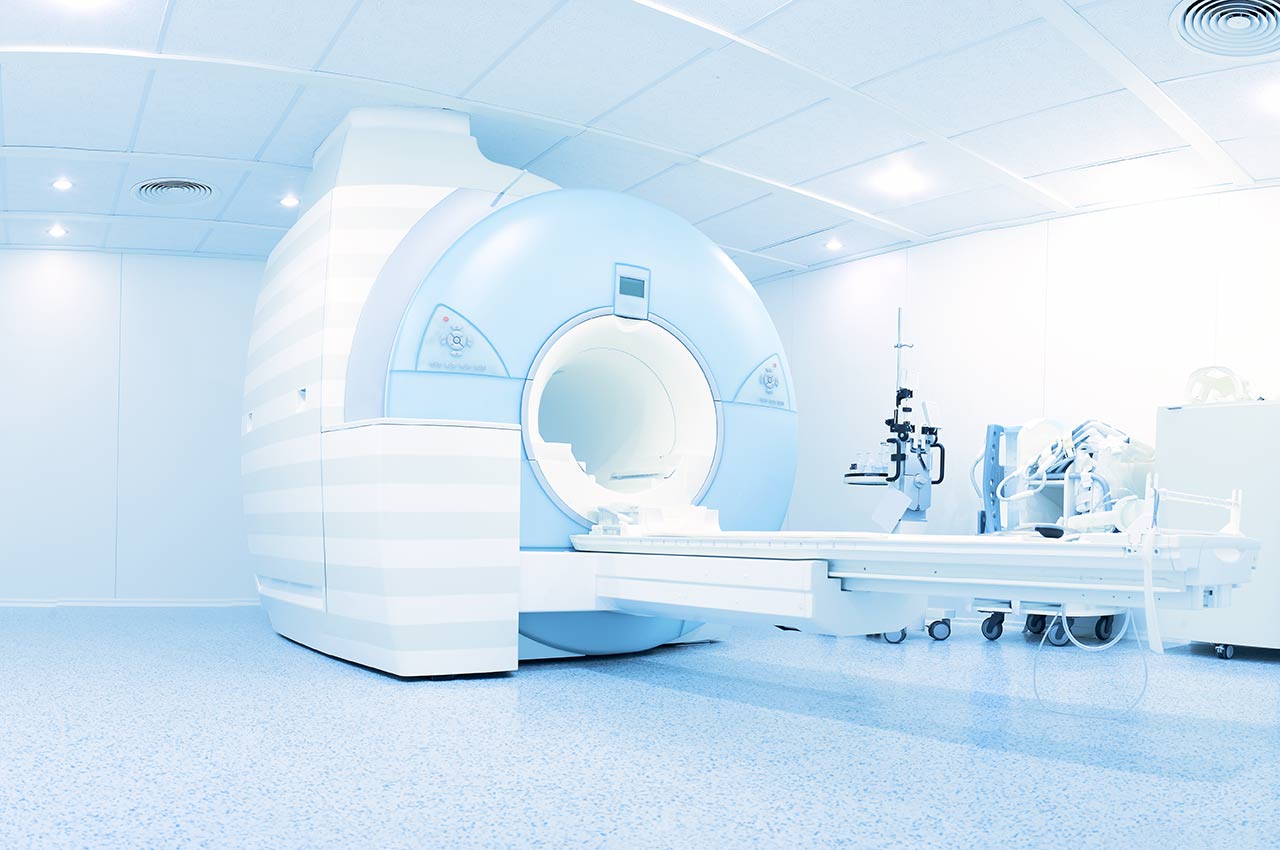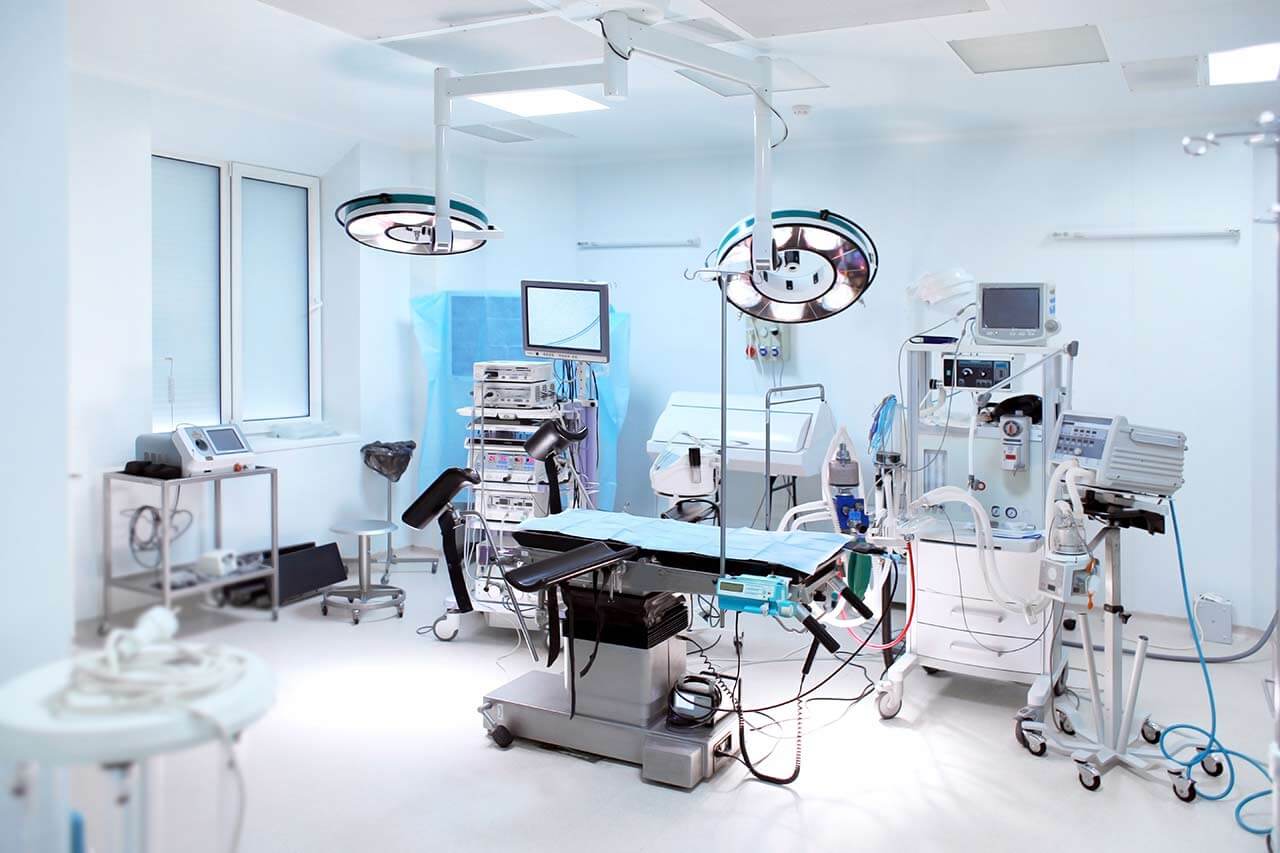
The program includes:
- Initial presentation in the clinic
- clinical history taking
- review of medical records
- physical examination
- laboratory tests:
- complete blood count
- biochemical analysis of blood
- indicators of inflammation
- indicators blood coagulation
- ophthalmologic examination:
- slit-lamp examination
- optical coherence tomography OCT
- pupil function tests
- ocular motility test
- ophthalmoscopy
- perimetry (visual field test)
- computer perimetry
- visometry (without correction and with correction)
- keratometry
- pachymetry
- refractometry (objective, subjective, cycloplegic)
- autorefractometry
- non-contact tonometer
- biomicroscopy
- services of chief physician and all leading experts
- preparation according to preoperative standard
- photorefractive keratectomy (PRK)
- explanation of future recommendations
Required documents
- Medical records
Service
You may also book:
 BookingHealth Price from:
BookingHealth Price from:
About the department
The Department of Adult and Pediatric Ophthalmology at the University Hospital Würzburg offers the treatment of visual impairment, as well as other diseases of the eyeball, optic nerve, retina and adjacent soft tissues. The department has state-of-the-art equipment and advanced experience, thanks to which it provides optimal conditions not only for the most accurate and comprehensive diagnostics, but also for innovative, effective treatment. For this purpose, it uses minimally invasive laser treatment methods combined with modern computer capabilities. The Chief Physician of the department is Prof. Dr. med. Jost Hillenkamp.
The department specializes in the diagnostics and treatment of glaucoma and retinal diseases. For the treatment of glaucoma, it offers all the modern micro-invasive methods using stent implantation, laser, and microcatheter. Special attention is also paid to macular diseases. The department's special scope is the operative treatment of macular hemorrhages using special imaging techniques. There are also available innovative medicines, which, for example, inhibit the development of the wet macular degeneration.
The department is the recognized Center for Pediatric Ophthalmology. In the interdisciplinary cooperation, department's pediatric ophthalmologists offer the prevention, timely diagnostics, and treatment of both congenital and acquired eye diseases in children. The department has one of the few Cornea Banks in Germany. Therefore, it successfully treats all corneal disease, such as burns, injuries, curvatures. To this end, the doctors use laser and ultraviolet radiation, as well as corneal replacement with transplants or stem cells.
The diagnostic and therapeutic range of the department includes the following options:
- Retinal and vitreous diseases
- Examination of the retina and vitreous body
- Age-related macular degeneration and other types of degeneration
- Diabetic retinopathy
- Retinal detachment
- Retinal vascular occlusion
- Choroid tumors
- Rare retinal diseases
- Surgical treatment methods
- Inflammation of the inner part of the eye
- Glaucoma
- Penetrating glaucoma surgery
- Non-penetrating glaucoma surgery
- Surgery of the anterior chamber angle
- Drainage implantation
- Tear ducts
- Endoscopy of the tear ducts using dacryoplasty
- Congenital tear duct stenosis
- Dacryocystorhinostomy
- Canaliculoplasty
- Pediatric ophthalmology
- Amblyopia
- Retinopathy of prematurity
- Visual impairment and blindness
- Treatment of strabismus and neuro-ophthalmology
- Strabismus
- Nystagmus (eye twitching)
- Endocrine ophthalmopathy
- Cataract
- Minimally invasive lens replacement
- Secondary cataract
- Special lenses
- Refractive surgery
- LASIK and PRK
- Refractive lens exchange
- Selection of eyeglasses and contact lenses
- Diseases of the eyelids and orbits
- Eyelid deformities
- Cosmetic eyelid surgery
- Tumors of the eyelid and orbit
- Upper eyelid drooping (ptosis)
- And other diagnostic and therapeutic options
Curriculum vitae
Academic Education
- 1987 - 1993 Study of Medicine at the Johannes Gutenberg University Mainz.
- 1993 and 1995 United States Medical Licensing Examination and State Examination, Level 1 and 2 (Medical State Examination, USA).
- 2007 - 2009 In-house Master's degree in Hospital Management, Faculty of Medicine at the Christian Albrecht University of Kiel in collaboration with Damp Academy GmbH.
Academic Degrees and Titles
- 1994 Title of the Candidate of Medical Sciences, Johannes Gutenberg University Mainz.
- 2006 Doctoral thesis defense and Venia Legendi in Ophthalmology, University of Regensburg.
- 2009 Master's Degree in Hospital Management, Christian Albrecht University of Kiel.
- 2011 Unscheduled Professorship in Ophthalmology, Christian Albrecht University of Kiel.
Professional Experience after Graduation
- 1994 - 1995 Intern in the Department of Gastroenterology at the Heidelberg University.
- 1995 Doctor's Certificate.
- 1996 - 1997 Internship in Internal Medicine at the Beth Israel Deaconess Medical Center (BIDMC), Albert Einstein College of Medicine and Research Activities at the Center for Diagnostic Imaging of the Eye, New York Eye and Ear Infirmary, USA.
- 1997 - 2000 Assistant Physician and Research Fellow in the Department of Ophthalmology at the University Hospital Duesseldorf.
- 2000 - 2002 Research Fellow and Scholar of the German Research Foundation, Rayne Institute, St. Thomas' Hospital, and Internship at the Retina Center, Moorfields Eye Hospital, London, UK.
- 2002 - 2004 Assistant Physician and Research Fellow in the Department of Ophthalmology, University of Regensburg.
- 2004 Medical Specialist Certification in Ophthalmology and Fellow of the European Board of Ophthalmology (FEBO) (European Specialist).
- 2004 - 2007 Senior Physician in the Department of Ophthalmology at the University of Regensburg.
- 2007 - 2014 Head of the Department of Ophthalmology and Deputy Director in the Department of Retinology at the University Hospital Schleswig-Holstein, Campus Kiel.
- 22.07.2013 Invitation to the position of (W3) Professor in Ophthalmology, Friedrich Schiller University Jena.
- 22.07.2014 Invitation to the position of (W3) Professor in Ophthalmology, Julius Maximilian University of Würzburg.
- Since 01.11.2014, Director of the Department of Adult and Pediatric Ophthalmology at the University Hospital Würzburg.
Photo of the doctor: (c) Universitätsklinikum Würzburg
About hospital
According to the FOCUS magazine in 2019, the University Hospital Würzburg ranks among the top national German hospitals!
The hospital is one of the oldest medical facilities in Germany. The centuries-old traditions of first-class treatment are combined with the very latest achievements of modern evidence-based medicine and advanced expert experience. The hospital is the maximum care medical center and covers all fields of modern medicine. The hospital has an impeccable international reputation and treats a large number of patients from other countries every year.
A distinctive peculiarity of the hospital is active interdisciplinary cooperation. A large number of diseases are diagnosed and treated within the specialized centers, which medical teams rely on the unique experience of treatment of a wide variety of clinical cases. For example, such centers include the General Cancer Center, the Stem Cell Therapy Center, the Breast Health Center, the Gastrointestinal Center, the Thoracic Surgery Center, etc. In total, the hospital has more than 40 centers of this kind. Therefore, the patients of the hospital are confident that they will be offered the most relevant treatment in accordance with the very latest medical recommendations.
In addition to the most advanced achievements and methods of modern medicine, the medical team of the hospital makes every effort to create a comfortable, friendly atmosphere, which promotes patient well-being and recovery.
Photo: (с) depositphotos
Accommodation in hospital
Patients rooms
The patients of the University Hospital Würzburg live in comfortable rooms made in a modern design and bright colors. The patient room includes a bed with a remote control, a bedside table with a sliding table, a wardrobe, a TV. The patient rooms have the possibility of Internet connection. The enhanced-comfort rooms are equipped with a safe, a fridge and upholstered furniture.
Meals and Menus
The patients of the hospital are offered a varied and tasty three meals a day. There is a daily choice of several menus, including a dietary one. In case of intolerance to any food, please inform the medical staff about your food preferences in advance. After that, you will be offered an individual menu. Also, the hospital houses the cafes and cafeterias with a wide assortment of drinks, fresh pastries, fresh salads, sweets and other dishes.
Further details
Standard rooms include:
Religion
Christian priests are available for the patients at any time. Representatives of other religions may be requested at any time.
Accompanying person
Your companion may stay with you in your room or at a hotel of your choice during the fixed program.
Hotel
You may stay at the clinic hotel or a hotel of your choice during the outpatient program. Our manager will help you choose the best option.





